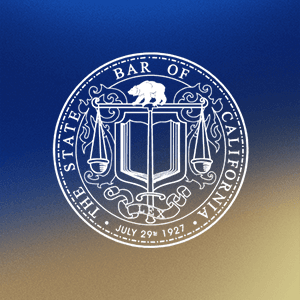Appellate Review
In California, anyone convicted of a crime is entitled to appeal that trial court decision to an appellate court. This higher court reviews the trial court record for errors which either affected a defendant's rights or affected the outcome of the trial. Where trial courts, judges and juries generally determine the facts of a particular case, appellate courts generally review and rule on legal issues which were before the trial court.
Not all errors committed by a trial court will constitute successful grounds for an appeal. A mistake by the trial court which would not have resulted in a more favorable outcome for a defendant will be considered a 'harmless error' and will not result in a new trial or a reversal of the trial court's decision. If the appellate court finds only a harmless error or no error at all it "affirms" the judgment. However, if there is a defect, the appellate court may direct the trial court to correct the defect, or it may "nullify", "reverse" or "vacate" the judgment and "remand" it back to the trial court for a new trial or other proceedings.
There is no trial in appellate court. An appellate court only reviews the trial court record and does not admit any new evidence. Arguments of the parties are presented through their appellate lawyers, if represented, or pro se, if the party is representing himself and come in the form of written briefs and oral arguments.
If you or someone you know has been convicted of a crime and feel that an error occurred during trial or there was insufficient evidence for a conviction, contact an experienced criminal appeals attorney to discuss your case.
Client Reviews
-
God Bless you Stephen, wish you all the successes in life.
“Stephen is a great contact and extremely helpful and knowledgeable. I am glad that I was his client in the past. Top lawyer, top man. God Bless you Stephen, wish you all the successes in life.”
-
Don't hesitate to contact them!
“I was referred to this group of Attorneys. I was started with a low cost made arrangements. My case had to do with assault allegations. The case was dismissed they helped me not to loose my daughter to the system.”
-
Never Talk To Police
Know your rights when questioned by law enforcement.
Defend Your Rights -
Learn What To Do When Confronted and Interviewed By The Police
Honest & practical advice during a free initial consultation. Call now to get started!
Read More -
Don't Plead Guilty!
A plea bargain may not be in your favor. Let us help evaluate all of your options.
Learn More








